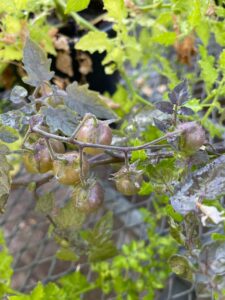
Georgia Gardiner, a vibrant 28-year-old mother from Leeds, received a devastating diagnosis in June 2024: she has linitis plastica, a rare and aggressive form of stomach cancer. Initially misdiagnosed with heartburn, Georgia’s persistent symptoms were dismissed by doctors for months, leading to a late-stage discovery of the disease.
The young mother first experienced symptoms last summer, including nausea, stomach cramps, and a significant loss of appetite. Despite losing nearly three stone and making multiple visits to her GP and local hospital, her concerns were repeatedly attributed to acid reflux. It was not until she insisted on further testing that an endoscopy revealed the true nature of her condition.
The Journey to Diagnosis
Georgia’s journey underscores a critical issue in the healthcare system: the potential for misdiagnosis when symptoms are not thoroughly investigated. Her case highlights the importance of patient advocacy and the need for doctors to consider rare conditions when common treatments fail.
“I felt invincible. I never thought that I would develop cancer at 28. My world fell apart when I was informed that it is incurable,” Georgia shared. Now, with only 12 months to live, she is focusing on making lasting memories with her fiancé, Callum Scott, and their two-year-old son, Arlo.
Understanding Linitis Plastica
Signs and Symptoms
Linitis plastica, often referred to as “leather bottle stomach,” is a rare adenocarcinoma that causes the stomach lining to thicken and lose its function. Symptoms can include:
- Long-term stomach pain
- Early satiety after meals
- Nausea and vomiting
- Sudden weight loss
- Indigestion or heartburn
- Trouble swallowing
- Black or tarry stools
Causes and Challenges
The exact cause of linitis plastica remains unknown, but it is linked to diffuse-type gastric adenocarcinoma. Genetic mutations, particularly in the CDH1 gene, are associated with hereditary diffuse gastric cancer (HDGC), significantly increasing the risk of developing this condition.
Environmental and lifestyle factors also play a role. These include infection with Helicobacter pylori, dietary habits high in salty or processed foods, and smoking. Unfortunately, the cancer’s rapid progression and resistance to chemotherapy make it difficult to treat effectively.
“Had I been taken seriously sooner, perhaps we could have nipped it in the bud before it spread. I just want others to get it in time,” Georgia explained.
Implications and Advocacy
Georgia’s story is a poignant reminder of the need for vigilance in healthcare. Her experience has inspired her to advocate for others, urging them not to ignore symptoms and to push for comprehensive testing when something feels amiss.
Experts emphasize the importance of early detection in improving outcomes for rare cancers. Dr. Emily Carter, an oncologist specializing in gastric cancers, noted, “Early diagnosis can significantly alter the prognosis of aggressive cancers like linitis plastica. Patients should feel empowered to seek second opinions if their symptoms persist.”
Looking Forward
As Georgia navigates her diagnosis, she remains focused on her family. The couple has moved their wedding plans forward, cherishing the time they have together. “The thing that breaks me is how much I’ll miss in Arlo’s life. He gives my life purpose,” she said.
While the future holds uncertainty, Georgia’s determination to fight the disease and advocate for awareness serves as an inspiration to many. Her message is clear: trust your instincts and demand answers when it comes to your health.
Georgia’s story highlights the critical need for awareness and better diagnostic practices for rare diseases. As she continues her journey, her courage and advocacy may pave the way for others to receive timely and accurate diagnoses.







